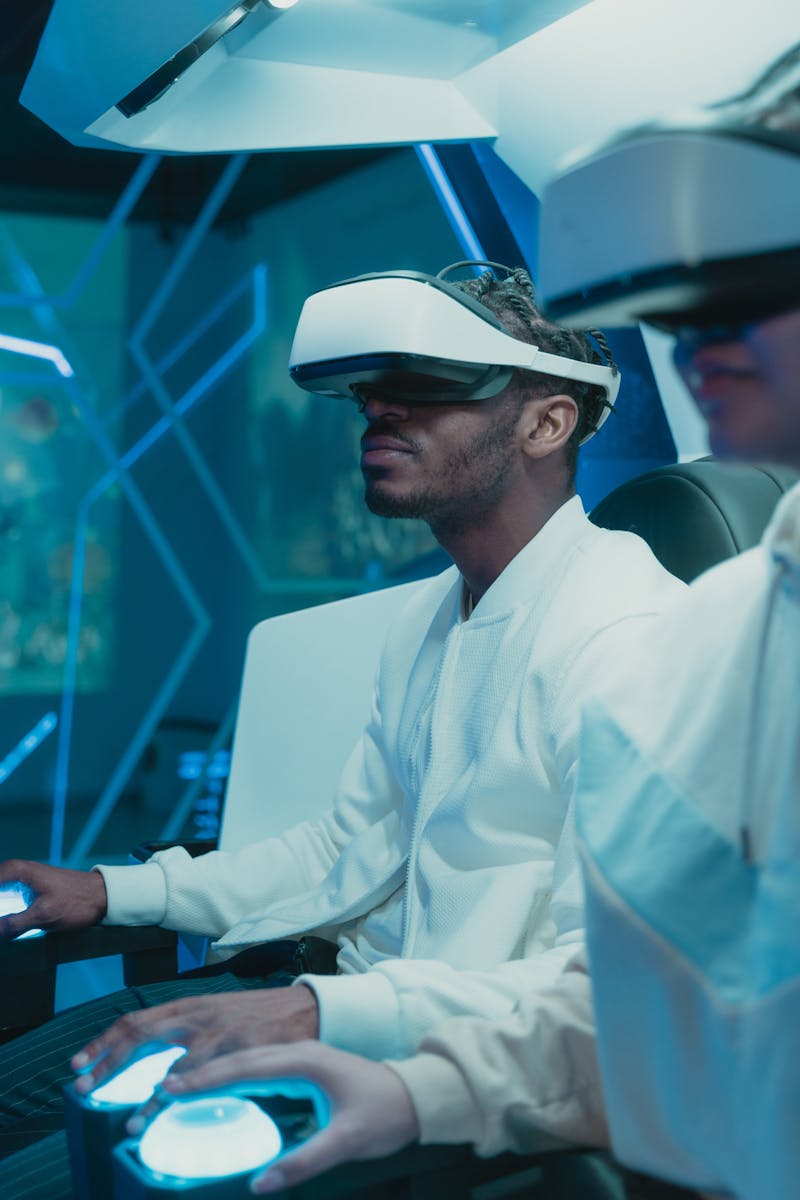On the Frontiers of Knowledge: Exploring the Impact of Artificial Intelligence in Reinforcement Learning
In the past decade, there has been an unprecedented surge in interest and advancement within the realm of artificial intelligence (AI). One of the impressive articulations of these advancements is the concept of Reinforcement Learning (RL), an area of machine learning that has tremendous implications for the future of intelligent systems. Today, we explore the fascinating depth and breadth of RL – a marriage of artificial intelligence and complex decision-making processes, and the potential impacts of its application.
Unfolding the Elegance of Reinforcement Learning
RL is a variety of machine learning where an intelligent agent learns by performing actions within a defined environment. These actions are followed by adjustments based on perceived rewards or penalties. The main goal of RL is to establish a method where an AI system or agent can be taught to behave in an environment by taking actions that yield maximum reward.
Here, the AI model works as an iterative trial-and-error learner; much like a child learning to walk, it stumbles and fumbles its way forward, perfecting its steps with time. This fundamental learning mechanism opens doors for autonomous learning, giving birth to AI agents capable of mastering complex skills on their own.
Navigating the AI Maze – The Deep Implications
The applications of RL have been profound and far-reaching, particularly in areas such as artificial general intelligence, game theory, logistics, robotics, and self-driving cars, among others. It's a game-changer in the truest sense, offering AI systems the ability to automatically determine the ideal behavior within a specific context, to maximize its performance.
AI systems trained via reinforcement learning have showcased remarkable accomplishments in tasks previously considered hard nuts to crack – from mastering the complex board game Go to autonomously navigating roads amidst heavy traffic.
A Pioneering Future: The Long-term Impact of RL on Intelligent Systems
Looking ahead, advancements in RL could spark a revolution, constructing an age where AI systems can learn and adapt on their own, extending the bounds of autonomous decision-making. Catering to the paradigm of continuous learning, it expands the capacity of AI systems in affording them the ability to learn from ongoing experiences and modify their strategies accordingly. This could potentially introduce a more equitable platform for AI, where the systems are built not just upon predefined tasks, but also incorporate a more human-like learning approach.
This paints an optimistic, albeit chaotic, panorama in which AI agents blur the lines between machine intelligence and human adaptability. What does it mean for a future where the machines we create can learn in ways we do, make decisions like we do, maybe even err and correct like we do?
The Existential Puzzle: A Philosophical Perspective
From a philosophical standpoint, RL brings us face-to-face with polarizing thought experiments about the very nature of intelligence. If we consider intelligence as the ability to learn and make use of acquired knowledge, the role of RL in building intelligent systems challenges our anthropocentric biases - pushing us to redefine our understanding of what constitutes as 'intelligent'.
Is it simply the human domain of learning through interaction, or does it extend to our creations that can mirror our learning patterns too? The lines blur, and therein lies the beauty of the chaos, the exciting uncertainty that AI and RL bring to our doors.
In conclusion, the application of AI methods in reinforcement learning is kindling revolutionary changes in the way we build intelligent systems. The frontier of our understanding about intelligence itself is rapidly evolving, with a future that seems filled with endless possibilities. Undoubtedly, the philosophical implications are profound and demand continued cogitation.
 Artificial Intelligence Machine Learning
Artificial Intelligence Machine Learning Cheap And Tasty Food Recipes
Cheap And Tasty Food Recipes Cybersecurity And Data Privacy
Cybersecurity And Data Privacy Entertainment And Pop Culture
Entertainment And Pop Culture Healthy Lifestyle And Well Being
Healthy Lifestyle And Well Being Home And Gardening
Home And Gardening Latest Car Models Comparisons And Reviews
Latest Car Models Comparisons And Reviews Personal Finance
Personal Finance Startup Culture And Entrepreneurship
Startup Culture And Entrepreneurship Technology And Gadgets
Technology And Gadgets Travel And Adventure
Travel And Adventure